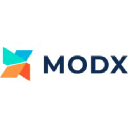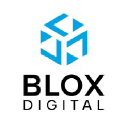
Shopify
Shopify: Ecommerce Platform for Online Stores
Shopify is an all-in-one ecommerce platform that enables businesses to create and manage online stores. It provides the tools and features needed to sell products, process payments, and handle shipping.
Key Features of Shopify
- Customizable online store with themes and templates
- Secure hosting and unlimited bandwidth
- Built-in payment processing and checkout
- Inventory management and order tracking
- Mobile-responsive design for seamless shopping experience
- Marketing and SEO tools to drive traffic and sales
- 24/7 customer support and educational resources
Shopify Pricing Plans
| Plan | Price | Features |
|---|---|---|
| Basic | $29/month | Essential features for starting an online store |
| Shopify | $79/month | Additional features for growing businesses |
| Advanced | $299/month | Advanced features for scaling and automation |
Shopify App Store
The Shopify App Store offers a wide range of apps and integrations to extend the functionality of online stores. These apps cover various categories, such as:- Marketing and conversion optimization
- Shipping and fulfillment
- Accounting and finance
- Customer service and support
- Inventory and product management
Trusted by Businesses Worldwide
Shopify powers over 1.7 million businesses in more than 175 countries. It is trusted by brands of all sizes, from small startups to large enterprises, across various industries.Start Your Ecommerce Journey with Shopify
Sign up for a free 14-day trial to explore Shopify's features and start building your online store. No credit card is required, and you can easily upgrade to a paid plan when you're ready to launch your business.
Shopify
Shopify, a leading e-commerce platform, offers robust content management capabilities for online stores.
This review explores Shopify's CMS features, highlighting its strengths and limitations for businesses seeking to manage their online presence effectively.
1. Overview and purpose of the CMS
Shopify is primarily an e-commerce platform that includes content management features for online stores.
Its CMS capabilities are designed to help businesses create, manage, and optimize their online storefronts and associated content.
Shopify powers over 1 million businesses in 175 countries, showcasing its global reach and versatility.
2. User interface and ease of use
Shopify boasts a user-friendly interface that is intuitive for both beginners and experienced users.
The dashboard provides quick access to essential features, including inventory management, order processing, and content editing.
Drag-and-drop functionality simplifies the process of creating and modifying page layouts.
3. Content creation and editing tools
Shopify offers a range of built-in content creation tools, including a blog editor and product page creator.
The platform supports rich media integration, allowing users to easily embed images, videos, and other multimedia elements.
A visual editor enables users to make real-time changes to their store's appearance without coding knowledge.
4. Asset management capabilities
Shopify provides a centralized asset library for managing images, videos, and other media files.
Users can easily organize, tag, and search for assets within the platform.
The CMS supports various file formats and offers basic image editing capabilities.
5. Customization and extensibility options
Shopify's App Store offers over 6,000 apps and integrations to extend the platform's functionality.
Users can customize their store's appearance using pre-built themes or by creating custom themes with Shopify's Liquid templating language.
Advanced users can leverage Shopify's APIs to create custom applications and integrations.
6. SEO features and optimization tools
Shopify includes built-in SEO features such as customizable title tags, meta descriptions, and URL structures.
The platform automatically generates sitemaps and robots.txt files to improve search engine crawlability.
Users can access additional SEO apps from the Shopify App Store for more advanced optimization capabilities.
7. Security measures and user management
Shopify provides robust security features, including SSL encryption, PCI DSS compliance, and fraud analysis tools.
The platform offers multi-level user permissions, allowing store owners to control access to different areas of the admin panel.
Shopify handles security updates and patches automatically, reducing the burden on store owners.
8. Performance and scalability
Shopify's cloud-based infrastructure ensures high performance and reliability, with a 99.98% average uptime.
The platform can handle high traffic volumes and sudden spikes, making it suitable for businesses of all sizes.
Shopify automatically optimizes images and employs content delivery networks (CDNs) to improve loading speeds globally.
9. Integration with third-party tools and services
Shopify integrates with numerous third-party services, including payment gateways, shipping providers, and marketing tools.
The platform offers native integrations with popular services like Google Analytics, Facebook, and Instagram.
Shopify's API allows for custom integrations with external systems and services.
10. Pricing and support options
Shopify offers tiered pricing plans starting at $29/month for basic features, with more advanced plans available for larger businesses.
24/7 customer support is provided via email, live chat, and phone for all plans.
Additional support resources include a comprehensive knowledge base, community forums, and video tutorials.
11. Mobile responsiveness and multi-device support
Shopify offers responsive themes that automatically adapt to different screen sizes and devices.
The platform provides a mobile-optimized checkout process to improve conversion rates on smartphones and tablets.
Shopify's mobile app allows merchants to manage their stores on-the-go, including order processing and inventory updates.
12. Multilingual capabilities and localization features
Shopify supports multiple languages for both the storefront and admin interface.
The platform offers built-in currency conversion and localized payment methods for international customers.
Merchants can easily create and manage translated versions of their product pages and content.
13. Workflow management and collaboration tools
Shopify provides basic collaboration features for team members working on the same store.
The platform offers task assignment and staff account management for delegating responsibilities.
While not as robust as dedicated project management tools, Shopify's workflow features are sufficient for most small to medium-sized businesses.
14. Version control and content revision history
Shopify maintains a revision history for product descriptions and blog posts.
Users can easily revert to previous versions of their content if needed.
The platform automatically saves drafts, preventing accidental loss of work.
15. Analytics and reporting functionalities
Shopify offers built-in analytics that provide insights into sales, traffic, and customer behavior.
The platform integrates seamlessly with Google Analytics for more advanced reporting capabilities.
Custom reports can be generated to track specific metrics and KPIs relevant to the business.
16. E-commerce capabilities
As a dedicated e-commerce platform, Shopify excels in online selling features.
The CMS includes robust inventory management, order processing, and shipping integration tools.
Shopify supports various sales channels, including social media platforms and marketplaces like Amazon and eBay.
17. Compliance with accessibility standards
Shopify themes are designed to be WCAG 2.1 compliant, ensuring accessibility for users with disabilities.
The platform provides accessibility features such as keyboard navigation and screen reader compatibility.
Merchants can further improve accessibility by following Shopify's accessibility guidelines.
18. Documentation and learning resources
Shopify offers extensive documentation and tutorials through its Help Center.
The Shopify Learn platform provides free courses on various aspects of e-commerce and store management.
Regular webinars and video tutorials are available to help users stay updated on new features and best practices.
19. Community support and ecosystem
Shopify boasts a vibrant community of developers, designers, and merchants.
The Shopify Community forums allow users to share knowledge, ask questions, and connect with experts.
Shopify Partners program enables agencies and freelancers to offer services to Shopify merchants, expanding the platform's ecosystem.
20. Migration tools and processes from other platforms
Shopify provides migration tools to facilitate the transition from other e-commerce platforms.
The platform offers guides and support for migrating from popular systems like Magento, WooCommerce, and BigCommerce.
Third-party apps in the Shopify App Store can assist with more complex migration scenarios.
In conclusion, Shopify's CMS capabilities, combined with its robust e-commerce features, make it a compelling choice for businesses looking to establish and grow their online presence.
While primarily focused on e-commerce, Shopify's content management tools are sufficiently powerful to meet the needs of most online retailers, offering a balance of ease-of-use and functionality.
Website:















































